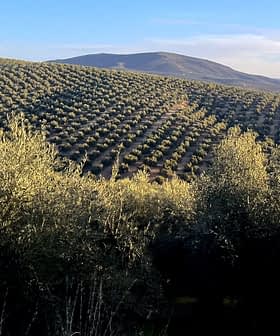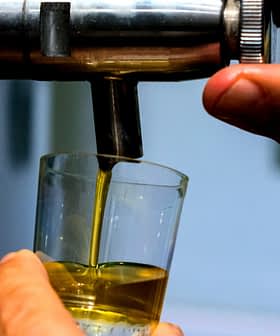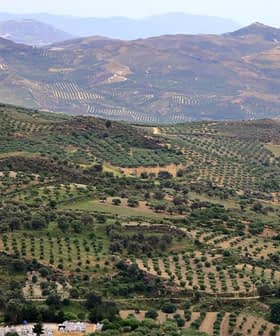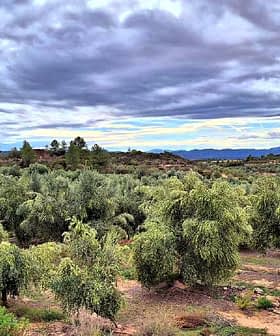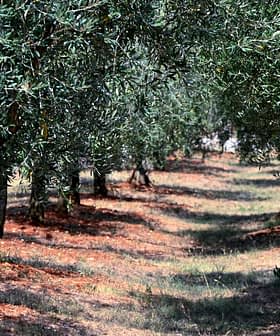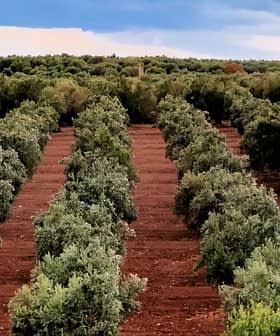On the Continuing Downward Slide of Olive Oil Prices in Greece
Olive oil prices in Crete have dropped significantly, causing concern among other olive oil producing areas in Greece. The Greek olive oil industry is struggling due to factors such as debt, lack of credit, and oversupply, leading to lower prices. While Greek olive oil companies are failing, Italian and Spanish companies are thriving, highlighting the need for self-sacrifice and proactive leadership in the Greek olive oil sector.
In Crete, bulk prices for premium qualityextra virgin olive oil with less than 0.3 acidity have dropped as low as €2.60 ($3.16) per kilo. Olive growers desperate for cash flow are selling at alarmingly low prices. The Greek media are blaming Italians buyers for not offering higher prices. They also blame the Cretan olive mills for not storing it and waiting for higher prices. Some are even blaming the olive growers for harvesting too quickly and creating a temporary oversupply.
Why are olive mills so quick to unload their highest qualityextra virgin olive oil at the lowest prices in Crete? Most are deeply in debt and need to sell to keep operating. The banks are not lending or extending credit at reasonable interest rates or terms, so many are forced to sell now. Prices in other provinces in Greece are barely holding above €3.00 to €3.20.
The drop below €3.00 in Crete is cause for concern among other olive oil producing areas in Greece as well. They do not want to see a downward trend sweep across Greece. Some enterprising and well-financed olive mills, however, are taking advantage of the low prices, buying and holding the stock with the aim of selling at higher prices in the new year.
An industry in crisis
A look at the demand for new barcodes with the Greek prefix for 2014, which can be viewed as an indicator of new product development, shows there has been an increase for demand in all sectors by an average of 50 percent. The only sector where demand for new barcodes has decreased — by 40 percent — was the olive oil industry. In contrast the food and beverage industry saw an increase of 68 percent for the same period.
This is another stark indication that Greece has failed to develop the olive oil industry — one that is based on the unique taste characteristics, health benefits and rich history of Greek olive oil. This failure is one of the most heart-breaking aspects of this present day economic crisis.
Shooting the Messenger
My last article on the fears of how low prices may effect the quality of olive oil Greeks will be consuming this year ruffled a few feathers. Some lamented that olive oil companies would lose money directly as a result of an open examination of the problem. A Greek website claimed they had received phone calls and complaints. This is the type of hyperbole that mirrors the state of the olive oil industry in Greece today.
The fact is, 70 – 80 percent of our exported, high-qualityextra virgin olive oil is being sold off at the lowest prices to Italians and other foreign buyers in bulk. The question the Greek government, olive oil companies and bloggers need to answer is: why are the prices dropping during a period of limited supply? We are not alone in this race to the bottom of the price pool. There is another country that is struggling to add value as it sells its liquid gold off in bulk at lower prices: Tunisia
Italian and the Spanish Olive Oil Companies are Thriving
In contrast, Italian olive oil companies who had to deal with some very real stigmas to their reputation are thriving. Honest and hard working Italian olive oil companies have managed to flourish in spite of the stigma of adulteration in the past and even into the present. They have become so successful they are forced to buy up Greek or Tunisianextra virgin olive oil in bulk in order to fill their orders. Producers in Spain have bounced back from adversities and are thriving. What is wrong with the Greek olive oil industry?
Infighting is the Real Stigma of Greece
Internationally, Greece is recognized as the cradle of modern civilization with the olive tree as its eternal symbol. It is home to some of the best EVOOs on the planet but has failed to take its rightful place at the top of the olive oil marketing and sales leaderboard. Regional infighting and mismanagement, coupled with a constant search for scapegoats to blame for failures is the real stigma that is becoming increasingly difficult to overcome. Attacking those who are supporting the Greek olive growers in their struggle will not absolve anyone of their responsibilities. The steps that need to be taken are not difficult to comprehend, but they do require self-sacrifice and a more proactive approach.
Hellenic Past Glory
Our ancient Hellenic culture is the ultimate campaign for olives and olive oil, like the crowning of a victorious Olympic athlete with a wreath made from wild olive twigs. Modern Greek politicians and their olive oil industry friends have taken this legacy of greatness and are selling it off in bulk. They need to show true leadership and use their power and influence to organize and uplift the olive oil sector in Greece and not only their narrow individual or regional interests. Too many times our ancient Hellenic culture is used in their marketing campaigns but not in their actions. They boast about our past Hellenic culture, but those in positions of power fail to exemplify it.
There is an ancient Hellenic maxim taken from one of Aesop’s tales “The Boastful Athlete.” In the fable, a proud athlete makes the claim that in the past he achieved a record-breaking long jump in competition on the island of Rhodes. A bystander challenges him to dispense with the boasting and simply repeat his record-breaking jump on the spot: “Here is Rhodes, lets see you jump here!” (ιδού η ρόδος, ιδού και το πήδημα!)
New Ways to Add Value to Greek Olive Oil
More recently, Greek scientists invented a method of accurately measuring the individual phenolic compounds inextra virgin olive oil using Nuclear Magnetic Resonance (NMR). They have been able to use the new tool to prove why ancient doctors like Hippocrates and Dioscourides bestowed upon olive oil some very specific health benefits stemming from the varietal, method of cultivation and time of harvest.
The secret of olive oil is in the type and quantity of specific polyphenols it contains. A number of small, creative and independent olive mills in Greece have adapted their methods and used NMR measurements effectively to promote theirextra virgin olive oil at much higher prices. Over the last two years, Olive Oil Times has dedicated a great deal of space to reporting on this new method of measuring the healthfulness of olive oil. The Greek government and the big olive oil companies however, have simply ignored it or tried to stifle it.
Opportunities Wasted
If the Greek government and the big olive oil companies supported NMR two years ago, the International Olive Council (IOC) and the EU would have already accepted it as an official method of measurement. The irony is that the IOC recently requested submissions for new methods of measuring individual polyphenols — as if the NMR method never even existed. The Greek authorities and the olive oil companies have wasted two years.
The invention of NMR and its validation by the IOC could have been used in a global marketing campaign by the Greek olive oil industry to affirm our Hellenic ancestors’ love affair with the health benefits of olive oil. Infighting and lack of vision and creativity have plagued the Greek olive oil industry and are the real cause of its failure.


